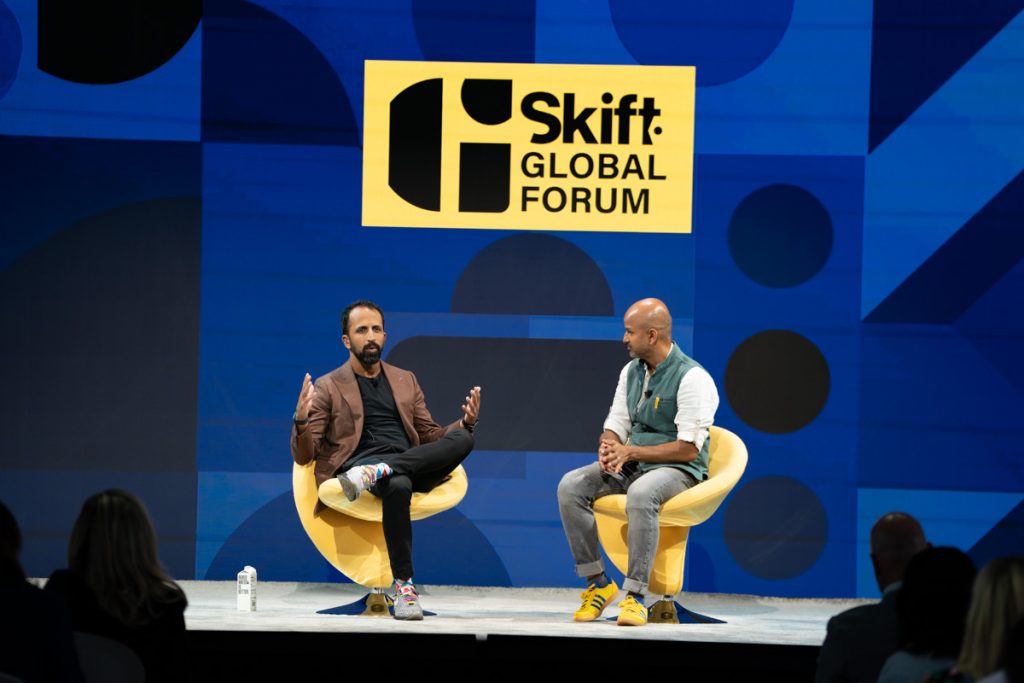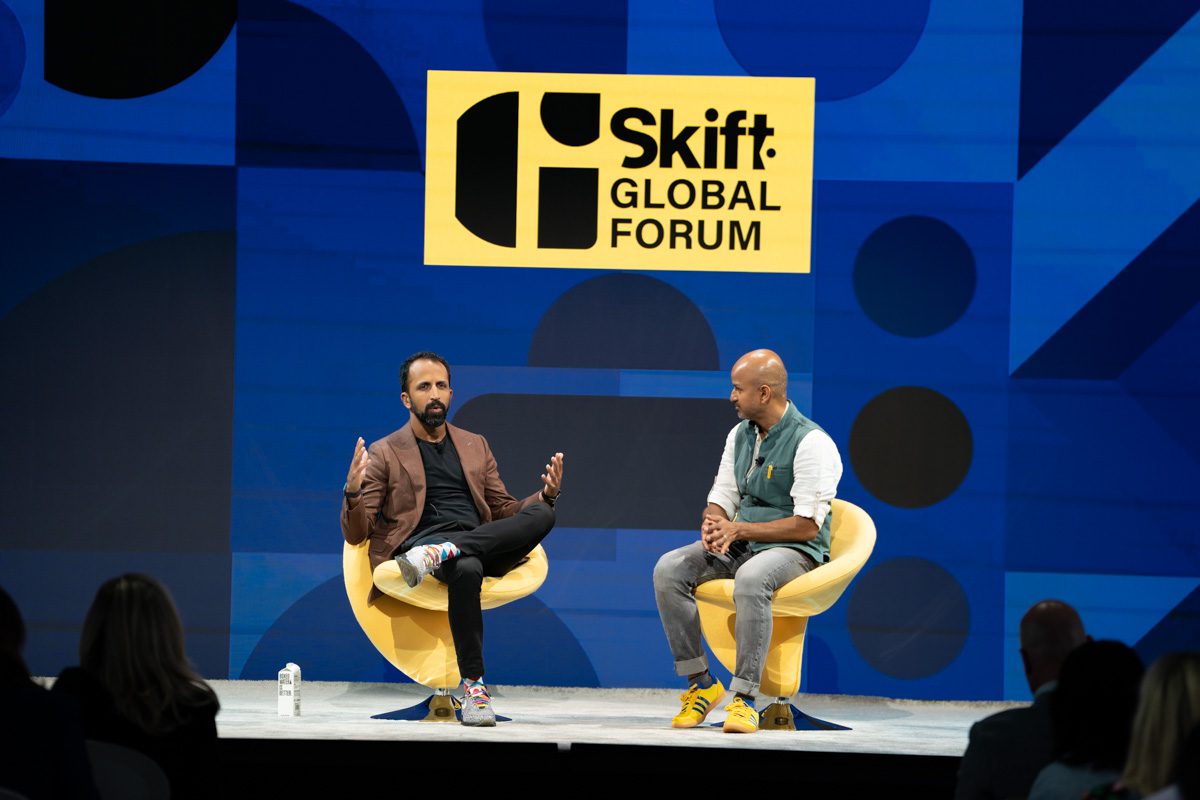
Skift Take
In a wide-ranging exclusive interview with Skift since he left American Airlines, Raja discussed the future of the airline industry.
Former American Airlines chief commercial officer Vasu Raja said he believes the future of the airline industry lies in loyalty programs and long-haul premium travel.
In an exclusive wide-ranging interview with Skift â his first since he left American this summer â Raja said that major airlines are no longer creating the most value for customers through their fleets or routes.Â
âNow it’s a time where this software, the constellation of things around frequent flyer, is really how people can go create value for customers and generate value as well,â Raja said.
Much of the emphasis on loyalty programs has also been reflected in airlinesâ latest earnings reports. For example, Delta Air Linesâ loyalty revenues were up 8% and it received $1.9 billion from American Express, a 9% increase from last year. American CEO Robert Isom said spending on its co-branded credit cards was up âdouble digitsâ in the second quarter.
âThe highest margin carriers that are out there typically have a couple of things in common,â Raja said. âOne, they’re sourcing, let’s call it 15% of their revenue just from the line items called frequent flyer.â
Raja added he believed transatlantic, long-haul routes were also insulating some airlines from other headwinds like high labor costs and aircraft delivery delays.
He said it also helps that more affluent travelers have been willing to spend more on travel, which has benefitted larger carriers like American, Delta and United Airlines.
âThose people who are affluent have become more affluent,â he said. âAnd let’s face it, travel is a thing which people aspire to do as they become more affluent. And that too has grown.â
Listen to the full interview here.
Can a Startup Carrier Thrive in the Current Environment?
After a federal judge struck down the JetBlue-Spirit merger, there has been much chatter that the U.S. airline industry has become so consolidated that itâs difficult for newer airlines to grow. The Justice Department is set to release a decision on whether it will try to block the Alaska-Hawaiian merger in the coming months.
Despite the consolidation thatâs taken place in the past two decades, Raja said he was optimistic that a startup airline could thrive with âan innovative conceptâ that emphasizes ancillary perks and frequent flyer programs.
âYou can do so many cool things for customers around redemption, earning miles, premium products that you may not need to have the scale of a big global network in order to go and create a lot of value,â he said.
However, Raja cautioned that the challenge lies in finding planes and profitable routes.
Why Raja Still Believes in Direct Distribution
One of the major factors that led to Rajaâs exit at American was a controversial direct selling strategy he championed.Â
That strategy would have allowed clients to access Americanâs most robust content, including Main Cabin Extra and preferred seats only if they were a preferred agency or a part of Americanâs New Distribution Capability tech. However, travel agencies were staunchly against the change, especially one that would have let customers earn frequent flyer miles when they book tickets with certain travel agencies.
American is now walking away from direct selling, with Isom saying he expects the carrier to lose $1.5 billion this year due to the strategy. American has also seen its revenues decline and hasnât been able to benefit from the resurgence in business travel.
But Raja, who told Skift he hasnât been at American since May, said he believed the current distribution strategy for the airline industry was inefficient.
âSo, why does the customer bear this kind of inefficiency when all of the players in the chain, the content producers, the agency, they’re all entirely cognizant of the inefficiency that it creates,â he said.
Raja said the airline industry needed to be more disruptive.
âThink about it, you can buy a home, finance a home and move into a home entirely from your phone, but you may need to call a human being in order to change your ticket, your airline ticket,â he said. âSo it’s out of joint with other things.â

